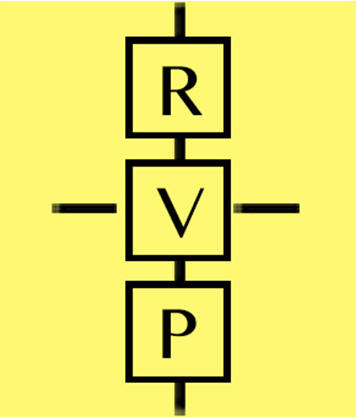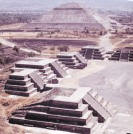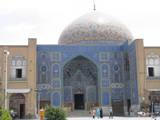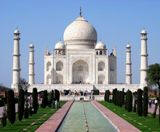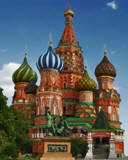|
AN INVITATION
THE ANNUAL SEMINAR
Civil Society as Democratic Practice:
Solidarity and Subsidiarity
September
8-November 14, 1997
Washington, D.C.
Problem
On approaching
the new century, indeed the new millennium, we remain
intensively effected and effectively conditioned by the
long cold war from which we emerge. As with any war, it
has worked in two directions. In vast regions the
ideology, in order to affirm the totality, laid waste to
all other levels of association, reducing the people to
anonymous masses. In reaction, contrary ideologies so
stressed individual autonomy and rights as progressively
to dissolve bonds of community, neighborhood, and even
family, thereby inevitably projecting ever greater
responsibilities on the state. Whether out of extremist
allegiance either to the state or to the individual, to
the whole or to the part, there emerged a common
rationalist extremism, marked by faceless communes or
lonely crowds.
It has been
sobering indeed to find that old habits -- especially
those of societies -- die slowly. Indeed, more recent
experiences of social disintegration and conflict shock
us and warn of a foreboding future. This threatens to be
constituted by communal aggression, which destroys from
without, and self-seeking corruption, which dissolves
confidence and cooperation from within. Thus, in some
areas celebrating the emergence of a free market there
is destabilizing disillusion at the avaricious
corruption accompanying the unleashing of private
initiative. In other areas, a reductivist focus upon
individual rights sweeps away common standards of human
decency and with them human social bonding.
Challenge
This creates an
urgent need for now a new examination of what has been
termed "civil society": it is social rather than
individual, for it is the more immediate context
required for personal growth, interaction and
fulfillment. It is civil, rather than state, to suggest
its personal and humanizing character. It goes beyond
any one dimension -- economic, educational, or religious
-- but by including all of these is concerned to provide
the integrated context without which none of them could
truly thrive.
This complements in an essential manner the two great
awakenings of our times regarding, respectively, the
dignity of the person and the importance of human
solidarity. But in order for these to be implemented,
that is, for personal dignity to be exercised in society
and for this to be personal in character, subsidiarity is
required as a third and integrating element.
This means,
first, a reconstitution of the structures of association
and cooperation which implement humansolidarity and
cooperation. In each field -- neighborhood, education,
health, business and religion -- the forms of
interpersonal social life must be rearticulated and
promoted.
Secondly, in
contrast to a rationalist and univocal ordering of all
according to an ideology imposed from above, these
patterns of human community must define from below their
natural hierarchy and interaction in a pattern ofsubsidiarity.
For this, key factors will be the concrete spatial and
temporal character of human needs and the practical,
cultural and religious patterns of human interests.
Beyond and in
dialogue with the political and the economic, this
active engagement and creative expression of the people
constitutes authentic democratic
process.
Such modes of
concrete cooperation between persons and peoples would
seem to emerge less from massive ideologies, than from
concrete needs. If so, the needy, long pressed by the
exigencies of daily survival under harsh and oppressive
economic or political pressures, may have much to share
regarding non formal structures and the working of civil
society.
This seminar will
bring together representatives of different regions and
multiple disciplines in an attempt to rediscover the
nature of civil
society and
the structures, order and dynamics of subsidiarity which
this implies.
Response
For this work
there are significant and promising resources. The
humanities (history and literature) can uncover the
values of the various cultures. The social sciences
(psychology, sociology and economics) can contribute
understanding of the structures of the world in which we
live. Above all, it will be necessary with these to
think together philosophically in order to understand
the way in which human freedom is open rather than
closed, and how self-assertion consists in reaching out
to others in the solidarity and subsidiarity in which
civil society consists.
For this a
seminar is projected with the following characteristics.
- Size:
restricted to under 20 scholars, in order to facilitate
intensive interchange around a single table;
- Interdisciplinary:
in order to draw upon the contemporary capabilities of
the various humanities and sciences and to penetrate
deeply into the philosophical roots and religious
meaning of cultures; - Inter-cultural: to
benefit from the experiences and commitments of the
various cultural communities from all parts of the
world, to discover their particular problems in our day,
and especially to envisage new and creative responses;
- Focused: a
single integrating theme, in order to encourage a
convergence of insights;
- Duration:
10 weeks, in order to allow the issues to mature, the
participants to establish a growing degree of mutual
comprehension, and new insight to emerge;
- Intensive:
analyzing in detail the papers planned in common and
written by each of the participants during the seminar;
and
- Publication:
the resulting volumes, consisting of chapters written by
the individual seminar participants, intensively
discussed in the seminar and then redrafted, will
reflect concretely the work of the seminar and share it
with those working in the various cultural communities
in facing the problems of contemporary life.
Organization
- Sponsor:
The Council for Research in Values and Philosophy, in
cooperation with The Catholic University of America and
Oblate College.
- Participants
in each seminar: 10 philosophers from the various
continents, with an equal number of professors from
various disciplines at the universities in the
Washington area. The visiting scholars from other
countries will be welcome to join in seminars and
courses at CUA, and to use the libraries and research
facilities of the Library of Congress and the
Universities and Institutes of the Washington area in
the furtherance of their research. The period of the
seminar should constitute effectively a hard working
mini-sabbatical.
- Place:
Room 300, St. Bonaventure Hall, The Catholic University
of America, Monroe and Michigan Ave. (at the
Brookland-CUA Metro Station), Washington, D.C.
- Schedule:
Tuesdays 10.00 a.m. - 12.00 noon: discussion by visiting
scholars of key contemporary texts related to the
evolution of the theme of the seminar. Fridays,
3:10-5:00 p.m.: presentation by the individual
participants of the drafts of their chapter, as a basis
for intensive critical and exploratory discussion by the
group.
- Costs:
No fees will be charged. Participants will be
responsible, however, for providing their own room and
board, unless otherwise arranged.
|

